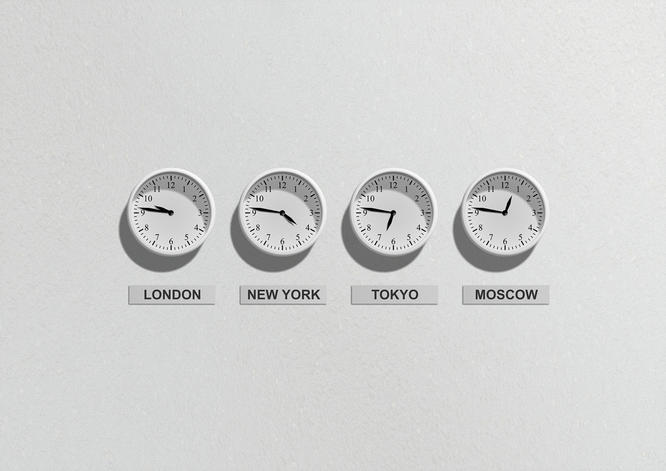How to Convince Your Partners and Speakers to Meet Submission Deadlines

If there’s one thing that brings event planners endless frustration, it’s having to chase partners and speakers for the presentations, files, and information that they’ve promised… to submit 2 weeks ago.
We feel your pain. With dozens of other pressing matters to concern yourself with in the lead up to any event, having to push partners and speakers for files, shouldn’t be on your list of priorities.
(Yet, it often is.) These are some ways you can convince your speakers, partners, and clients to meet their submission deadlines - so you can concentrate on what’s really important, putting on a fantastic event.
1. Buffer enough “delay time” for yourself
When speakers and partners delay giving us their materials, it’s not because they wish to sabotage us – it’s often because they do not see the urgency of the situation, and leave things till the last minute. (Of course, “last minute” often runs into “overtime”.)
Set yourself a buffer of anywhere between a few days, to even a few weeks. This way, you can inject urgency into your reminders, well before the situation really becomes urgent.
2. Consistent reminders
Be sure to consistently remind speakers and partners of their submission deadlines, in advance of their actual deadline. (Often, speakers and partners only start working on the items they’re supposed to submit to you, after you’ve reminded them about it.)
An easy way to “automate” this process, is to schedule reminders for yourself. You can easily do so with any number of apps on your phone, or free resources such as Google Calendar.
Once your reminder goes off, simply send each person on your list a gentle reminder that their deadline is coming up in “x” days’ time.
3. Emails are good, phone calls are better
Picking up the phone and making a phone call is quickly becoming a lost art, and it’s little wonder why. Email has made our lives so much easier, and more efficient. With one click of the button, you can send reminders and chasers to everyone.
However, such emails are also a lot more likely to be ignored, or outright deleted. This is especially so when speakers and partners may be busy when the email comes in – then off into the “archive” folder it immediately goes. What’s not so easy to ignore, or forget, is a personal phone call.
This may take a little more time at first, but can save you a lot of time later on (when you really need it), as speakers and partners begin sending you their presentations earlier, rather than later. (If only to avoid having you call them for the umpteenth time.)
4. Set a hard stop
When all else fails, a “hard stop” deadline is usually what gets speakers and partners to cooperate. This means stating the exact day and date that the presentation has to arrive in your inbox – or it simply won’t be included in the event.
Realistically, depending on the situation, this may be difficult to enforce. If you’re an events company chasing your clients’ bosses for their presentations, you may simply not be allowed to enforce a “hard stop” deadline.
So here’s a “softer” way of setting the “hard stop” deadline. You can give the presenter a technical/logistical reason why his/her presentation needs to arrive at a certain date and time. For example,
“We need your presentation slides at the very latest, 30 August, 5pm. Otherwise, the AV crew won’t be able to test it on their systems prior to the event.
From previous experience, we have found that this may result in formatting and playback issues that we will not have time to fix – resulting in a presentation that looks bad, as well as videos and images that fail to display properly.”
5. Place the responsibility in the right hands
This works very well, if it’s established at the start of the event planning process. So if you’re an events company, be sure that your client agrees to this condition before things start heating up and getting busy.
Here, you’ll simply have your client agree that the responsibility of receiving all the necessary information you need for presentations/registrations will belong to a certain person at your client’s company. This way, all your reminders and chasers will be seen as additional work that you’re gladly putting in to help this person do their job well.
Not only will this reduce the stress on yourself, it’ll also mean that you have an ally who will help you to chase their speakers and colleagues for all the information and materials you need for a successful event.



